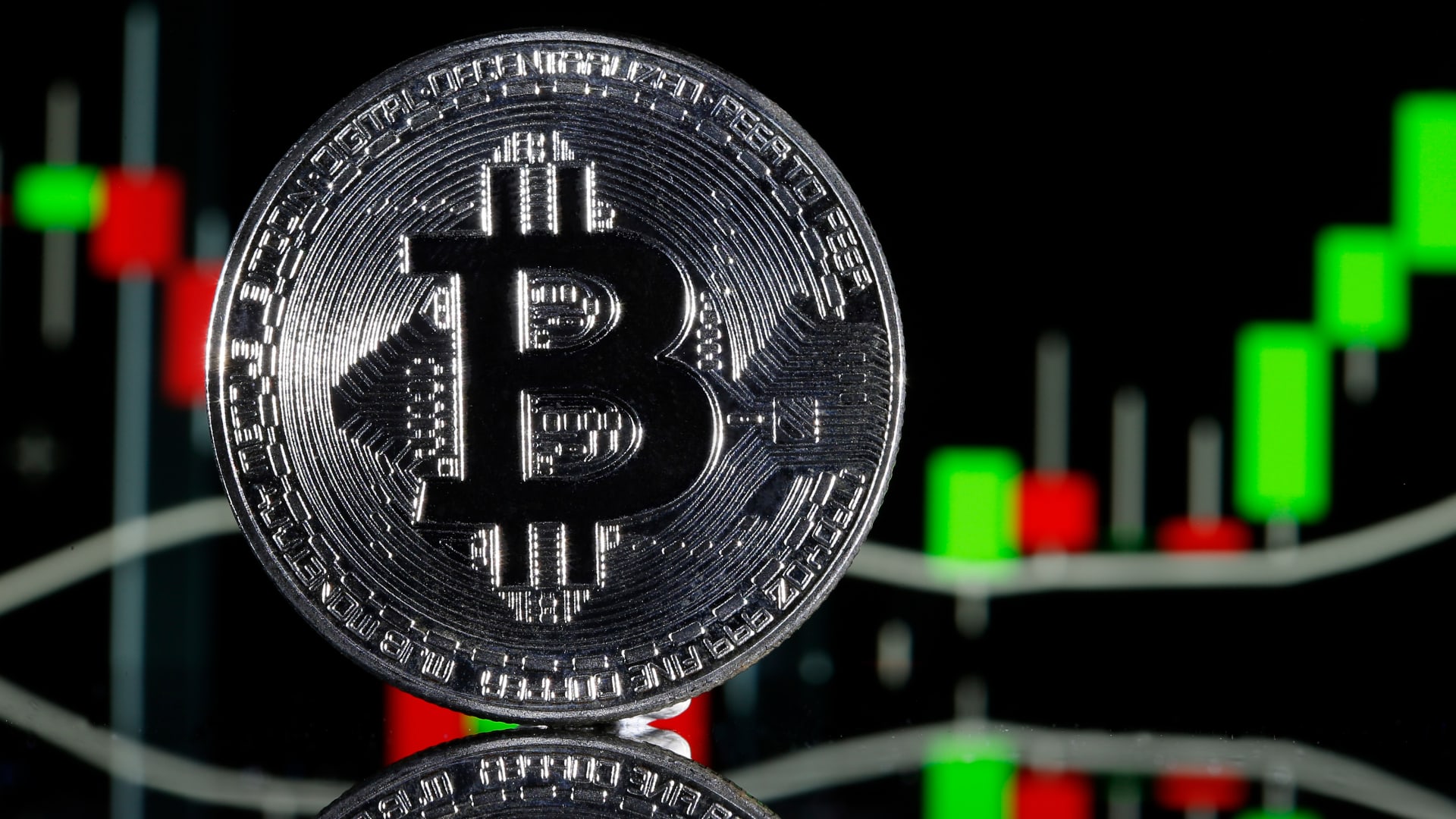What is Bitcoin?
A Deep Dive into the Revolutionary Cryptocurrency
Bitcoin, often referred to as digital gold, has taken the world by storm since its inception in 2009. But what exactly is Bitcoin, and why has it become such a prominent figure in the world of finance and technology? Whether you’re new to the world of cryptocurrency or have heard the term a hundred times, understanding Bitcoin’s origins, workings, and significance is key to grasping the future of digital money.
In this comprehensive guide, we’ll explore Bitcoin from its roots to its potential future, breaking down complex ideas into digestible insights that are easy to understand.
Table of Contents
- Introduction: What is Bitcoin?
- A Brief History of Bitcoin
- 2.1 The Creation of Bitcoin
- 2.2 The Vision Behind Bitcoin
- 2.3 Bitcoin’s Early Struggles and Growth
- How Bitcoin Works: The Basics
- 3.1 Blockchain Technology Explained
- 3.2 Bitcoin Mining: A Key Component
- 3.3 Decentralization: No Banks, No Intermediaries
- Why Bitcoin Matters
- 4.1 Bitcoin as a Store of Value
- 4.2 The Decentralized Revolution
- 4.3 Bitcoin’s Role in Financial Inclusion
- The Advantages and Challenges of Bitcoin
- 5.1 The Benefits of Bitcoin
- 5.2 The Risks and Challenges
- How to Buy and Store Bitcoin
- 6.1 Where to Buy Bitcoin
- 6.2 Bitcoin Wallets: Types and Uses
- Bitcoin and Regulation: Legal Landscape
- The Future of Bitcoin
- 8.1 Bitcoin and Global Adoption
- 8.2 Innovations and Scalability Issues
- 8.3 The Role of Bitcoin in the Digital Economy
- Conclusion
- FAQs About Bitcoin
1. Introduction: What is Bitcoin?
Bitcoin is a decentralized, digital currency that was created in 2009 by an anonymous individual or group under the pseudonym Satoshi Nakamoto. Unlike traditional currencies, Bitcoin doesn’t rely on a central authority like a government or a bank to validate transactions. Instead, it uses a peer-to-peer network to enable secure and direct transactions between users, eliminating intermediaries.
But Bitcoin is more than just a currency. It represents a revolution in how we think about money, security, and trust in the digital age. It is powered by blockchain technology, which guarantees transparency, immutability, and security without relying on any single entity.
2. A Brief History of Bitcoin
2.1 The Creation of Bitcoin
Bitcoin’s journey began in 2008, when Nakamoto released the white paper titled Bitcoin: A Peer-to-Peer Electronic Cash System. In this paper, Nakamoto outlined a system for transferring value digitally without the need for a trusted third party like a bank.
The first block of Bitcoin, known as the “genesis block,” was mined on January 3, 2009. This marked the birth of the Bitcoin network. The first-ever Bitcoin transaction occurred when Nakamoto sent 10 BTC to a computer scientist named Hal Finney, kickstarting what would become a global phenomenon.
2.2 The Vision Behind Bitcoin
Bitcoin was created with several key principles in mind:
- Decentralization: To eliminate the need for central authorities such as banks or governments.
- Security: To create a system that would be resistant to fraud, censorship, and manipulation.
- Financial Freedom: To empower individuals with control over their own wealth without reliance on traditional financial institutions.
2.3 Bitcoin’s Early Struggles and Growth
In its early years, Bitcoin was largely seen as a niche technology used mostly by cryptography enthusiasts. However, it gained attention in 2010 when the first real-world transaction took place: a man named Laszlo Hanyecz paid 10,000 BTC for two pizzas. Back then, 10,000 BTC was worth about $41. Today, it’s worth millions.
Over time, Bitcoin’s value and influence grew exponentially, attracting more investors, developers, and businesses. By the mid-2010s, Bitcoin had made headlines as a new form of digital asset and an alternative to traditional currencies.
3. How Bitcoin Works: The Basics
3.1 Blockchain Technology Explained
At the heart of Bitcoin is blockchain technology, which acts as a public ledger for all Bitcoin transactions. Each block in the chain contains a record of several transactions, and these blocks are linked together in chronological order, forming a chain.
The blockchain ensures that Bitcoin transactions are transparent, secure, and immutable. Once a transaction is recorded on the blockchain, it cannot be altered or deleted, making it resistant to fraud.
3.2 Bitcoin Mining: A Key Component
Bitcoin mining is the process through which new Bitcoin is created and transactions are verified. Miners use powerful computers to solve complex mathematical puzzles, and when they solve these puzzles, they add a new block to the blockchain. In exchange for their efforts, miners are rewarded with newly created Bitcoin.
Mining plays a crucial role in maintaining the integrity of the Bitcoin network. It prevents double-spending and ensures that transactions are legitimate.
3.3 Decentralization: No Banks, No Intermediaries
One of Bitcoin’s most revolutionary aspects is its decentralization. Unlike traditional currencies that are issued and controlled by central banks, Bitcoin operates on a peer-to-peer network where every participant can act as both a user and a validator of transactions.
This decentralization eliminates the need for intermediaries such as banks, which often charge fees and take time to process transactions. With Bitcoin, transactions can occur almost instantly and without the involvement of third parties.
4. Why Bitcoin Matters
4.1 Bitcoin as a Store of Value
Many people view Bitcoin as a store of value, similar to gold. Due to its fixed supply—only 21 million Bitcoin will ever be mined—it is often seen as a hedge against inflation. As governments print more money, the value of fiat currencies tends to decrease, while Bitcoin’s value is expected to remain more stable due to its scarcity.
4.2 The Decentralized Revolution
Bitcoin’s decentralized nature allows it to operate outside the control of governments and institutions. This is especially important in countries with unstable economies or oppressive governments. Bitcoin provides an alternative form of wealth that cannot be easily seized or manipulated.
4.3 Bitcoin’s Role in Financial Inclusion
Bitcoin is also playing a crucial role in financial inclusion. With Bitcoin, anyone with access to the internet can participate in the global economy, even if they don’t have a bank account. This is particularly important for people in developing countries where access to traditional banking services is limited.
5. The Advantages and Challenges of Bitcoin
5.1 The Benefits of Bitcoin
- Security: Transactions are verified on the blockchain, making Bitcoin highly secure and resistant to fraud.
- Decentralization: No central authority means no risk of government manipulation or interference.
- Global Accessibility: Bitcoin can be sent and received anywhere in the world, offering financial access to the unbanked.
5.2 The Risks and Challenges
- Volatility: Bitcoin’s price can fluctuate dramatically, making it a risky investment.
- Regulatory Uncertainty: Governments around the world are still figuring out how to regulate Bitcoin and cryptocurrencies.
- Scalability Issues: The Bitcoin network can become congested during periods of high demand, leading to slower transaction times and higher fees.
6. How to Buy and Store Bitcoin
6.1 Where to Buy Bitcoin
Bitcoin can be bought from a variety of online exchanges such as Coinbase, Binance, and Kraken. These platforms allow users to purchase Bitcoin using traditional currencies like USD or EUR.
6.2 Bitcoin Wallets: Types and Uses
Once you’ve bought Bitcoin, you need a wallet to store it. There are two main types of wallets:
- Hot Wallets: These are online wallets that are connected to the internet. They are convenient but less secure than cold wallets.
- Cold Wallets: These are offline wallets that store Bitcoin on hardware devices. They are more secure but less convenient for frequent transactions.
7. Bitcoin and Regulation: Legal Landscape
The legal status of Bitcoin varies greatly from country to country. Some countries, like El Salvador, have adopted Bitcoin as legal tender, while others have banned it outright. In many places, governments are still trying to figure out how to regulate Bitcoin without stifling innovation.
8. The Future of Bitcoin
8.1 Bitcoin and Global Adoption
Bitcoin’s future is closely tied to global adoption. As more businesses and individuals use Bitcoin for payments, savings, and investments, it could become a mainstream currency. However, adoption will depend on factors such as regulation, scalability, and public perception.
8.2 Innovations and Scalability Issues
The Bitcoin network faces scalability challenges, especially as its user base grows. Solutions like the Lightning Network are being developed to address these issues and make Bitcoin transactions faster and cheaper.
8.3 The Role of Bitcoin in the Digital Economy
Bitcoin is positioned to play a significant role in the emerging digital economy. With its potential to disrupt traditional financial systems and create new ways of doing business, Bitcoin could be a foundational technology in the next stage of the internet’s evolution.
**9. Conclusion
Bitcoin has undoubtedly changed the way we think about money and finance. With its decentralized nature, security, and potential for financial inclusion, it represents a new era of digital currency. While there are challenges and risks, its transformative potential is undeniable. As Bitcoin continues to evolve, it could have far-reaching implications for the global economy.
10. FAQs About Bitcoin
1. Is Bitcoin legal?
The legality of Bitcoin varies by country. In some countries, it is fully legal, while others have imposed restrictions or outright bans.
2. How can I buy Bitcoin?
You can buy Bitcoin from online exchanges using fiat currency or other cryptocurrencies. Popular exchanges include Coinbase, Binance, and Kraken.
3. Can Bitcoin be stolen?
While Bitcoin itself is secure, it can be stolen if your private keys are compromised. It’s essential to store your Bitcoin in a secure wallet.
4. How can I store Bitcoin safely?
The safest way to store Bitcoin is in a cold wallet, which is an offline storage method. Hardware wallets like Ledger and Trezor are popular options.
5. What’s the difference between Bitcoin and other cryptocurrencies?
Bitcoin was the first cryptocurrency, and it’s primarily used as a store of value and a medium of exchange. Other cryptocurrencies like Ethereum offer additional features, such as smart contracts, which Bitcoin doesn’t support.
It seems like we’ve covered the core aspects of the Bitcoin article already, but if you’d like to continue or expand further on any specific section, feel free to let me know! I can dive deeper into areas like:
- Bitcoin’s impact on the global financial system
- Bitcoin vs. traditional banking systems
- The environmental impact of Bitcoin mining
- Bitcoin as an investment: Long-term outlook
- Bitcoin forks and their significance
Just let me know what additional details or topics you’d like me to elaborate on!

My Name is Nadeem Shaikh the founder of nadeemacademy.com. I am a Qualified Chartered Accountant, B. com and M.Com. having professional and specialize experience in field of Account, Finance, and Taxation. Total experience of 20 years in providing businesses solution in Taxation, Accounting, and Finance with all statutory compliance with timely business performance Financials reports. You can contact me on nadeemacademy2@gmail.com or contact@nadeemacademy.com.
